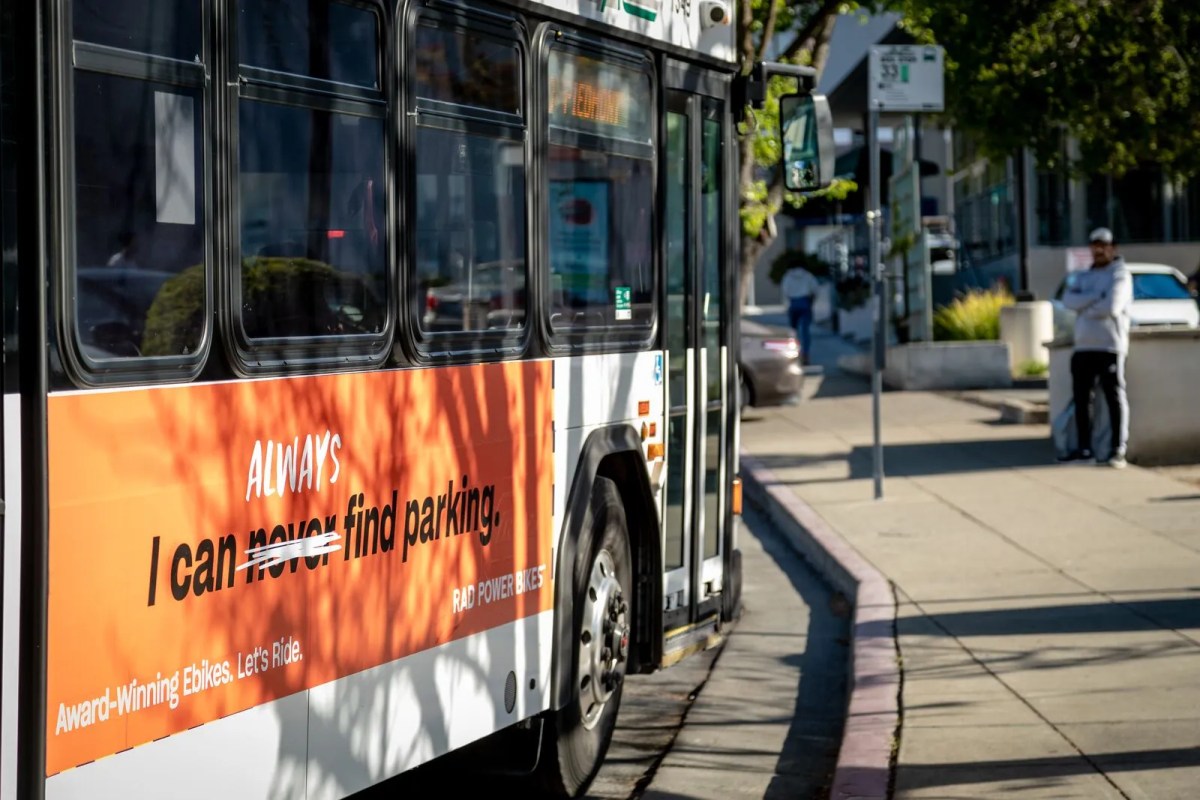The AC Transit Board completed its redistricting process Wednesday night, phasing out its two at-large seats and approving a map with two new wards.
The board also established a timeline for electing new ward directors over two years that will leave at-large directors H.E. Christian Peeples and Joel Young out of their jobs. Both live in Ward 3 and will have the option of running for that seat in 2026, but Peeples will have to wait two years after his term ends in 2024. Young’s term ends in 2026.
The seven-member board overseeing AC Transit, the state’s third-largest public bus agency, will transition to being elected by districts. Previously, it was composed of two at-large directors and five directors representing geographic wards.
The new map boundaries are drawn more closely around existing cities and attempt to keep communities with similar interests and demographics together. Fremont and East Oakland now have their own wards, while Alameda, which was previously joined in a ward with East Oakland, is now part of Ward 3 with residents around Lake Merritt, Piedmont, and parts of the Oakland Hills.
Berkeley, which was previously part of Ward 1 with Richmond, will now be part of Ward 2 with Emeryville and West Oakland. The Elmwood neighborhood, which was previously separated from the rest of Berkeley, will join the rest of the city.


“The goal of redistricting was to create a balanced and inclusive electoral map, providing each ward with a distinct identity and opportunity on the Board,” the AC Transit Board said in a press release. “[E]ach of the seven elected Board Directors will represent a more condensed ward of residents that aims to better mirror the diverse communities served by AC Transit.”
The board also voted 5-2 to hold elections in November for Wards 1, 2 and 6 and elections for Wards 3, 4, 5 and 7 in 2026, a plan that ensures representation for wards 2 and 6 but leaves Ward 3 without a representative until 2026. The two at-large directors, Joel Young and Christopher Peeples, voted against the decision. Young did not respond to a request for comment and Peeples could not immediately be reached.
Peeples argued that the board’s plan failed to prioritize giving minority communities the opportunity to vote for their AC Transit representative during presidential years, when turnout is higher. He said Ward 7, an area that mainly includes Fremont, should be up for re-election this fall, not Ward 2, which contains Berkeley, North Oakland and West Oakland.
“What we have seen here it’s a perfect example of institutionalized racism,” Peeples said during Wednesday night’s board meeting. (The plan Peeples wanted to see instead wouldn’t give him a chance to rejoin the board any sooner.)
Board directors pushed back against Peeples’ criticism of the sequence, which was overwhelmingly favored by advocacy groups and public commenters. A legal letter the board received in October said that leaving a vacancy in Ward 2 was not in the best interest of voters and did not further the goals of the California Voting Rights Act, particularly with regard to Asian American voters.
“I was very surprised, almost fell out of my chair, Director Peeples, regarding the assertion of institutional racism,” Sarah Syed, who represents Ward 3, said at the meeting. She argued that the board had a responsibility to ensure that voters in Ward 2, home to many Asian and Pacific Islander low-income residents who rely on public transit, not be left without a representative for two years.
The other board directors will have their terms end at the same time that their wards are set to hold elections.
Jovanka Beckles (Ward 1) and Jean Walsh (Ward 2) will be up for re-election this fall. Beckles is running for State Senate — if she makes it to the second round, she won’t be able to run for AC Transit Board simultaneously. A new board director will need to fill the position for Ward 6, which represents Hayward and Newark — none of the current board directors live in this area.
The decision to go to ward elections was made in July. The board spent eight months determining the boundaries of the new wards and setting a schedule for electing directors.
The vote to transition to ward elections was made after receiving a legal letter in March alleging that its method of electing two at-large candidates to its seven-member board violates the Voting Rights Act.
AC Transit joins a slew of cities and governing boards making the shift away from at-large elections.
Since the passage of the California Voting Rights Act in 2001, at least 80 California cities have switched to district elections. Some cities have lost multi-million dollar lawsuits claiming their at-large election systems dilute minority votes. Other cities and governing boards have made the change voluntarily or under pressure, like the AC Transit Board.
In its March resolution, the AC Transit Board said it was changing its election system to avoid the legal fees associated with fighting a California Voting Rights Act lawsuit. Shifting to district-only elections will also save the board over a million dollars per election, due to the higher costs associated with running at-large campaigns spanning two counties.
Correction: A previous version of this article incorrectly attributed a quote by Sarah Syed. It was Syed who said she was surprised at H.E. Christian Peeples’ comment about institutional racism, not Jean Walsh.

